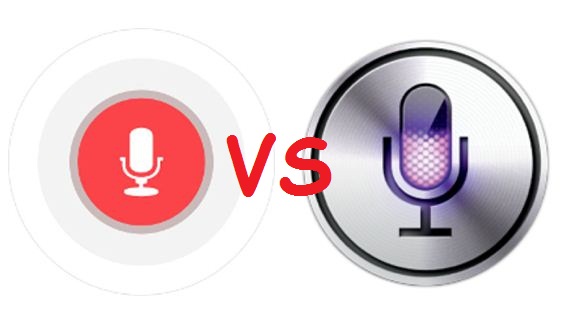Android and iOS are the two most popular smartphone operating systems used on devices today, and although they have many fundamental differences, one trait they share is the digital assistant.
Digital assistants make life easier by providing voice controlled access to many essential functions of a smartphone, such as composing texts and emails, navigating contact and event scheduling. Each operating system features a unique take on the role of the digital assistant, giving you plenty of options for finding good help.

“OK Google”
OK Google is Android’s digital assistant feature, and it works directly with the industry-leading Internet search utility to deliver relevant information in response to queries as well as handle standard digital assistant tasks. OK Google is chiefly designed for function, using a simple interface to deliver faster results and overall operating time than Siri.
Less than ideal aspects of OK Google include its level of integration with the search engine. The programming’s focus on information can sometimes interfere with secondary tasks, leading to issues like an Internet search resulting from a command rather than the intended function. Another drawback to OK Google is that it must be activated prior to use unlike Siri, which is set by default to always remain active.
“Hey, Siri”
Apple’s signature digital assistant is known as Siri, and it’s designed for use with all iOS devices running iOS 5 or later. Siri takes more of a focus on companionship, using more robust programming to learn more about its user and deliver personalized responses. Siri combines together results from a variety of search engines with informational queries, using its advanced word processing and listening abilities to create sense of understanding when interfacing with the user as well as turning out data.
Read more about iiNets mobile phone plans so you can decide which plan is the best fit for you & your family.
Siri’s comprehensive operation style comes with a few trade-offs, including a significant drain on battery life due to Siri’s permanent activation. The complex programming required to simulate conversation with the user is also more data-intensive, and common operations can take much longer with Siri as compared with OK Google, which is much more streamlined.
Digital assistants make smartphones even more powerful by making their operation more intuitive. By directly responding to your commands instead of requiring physical input, programmers remove a barrier between the tool and the user, effectively turning the device into an extension of you. Although both of the most popular digital assistants provide substantial benefit to any user, their differences in philosophy often makes one much more suitable for an individual than the other.






